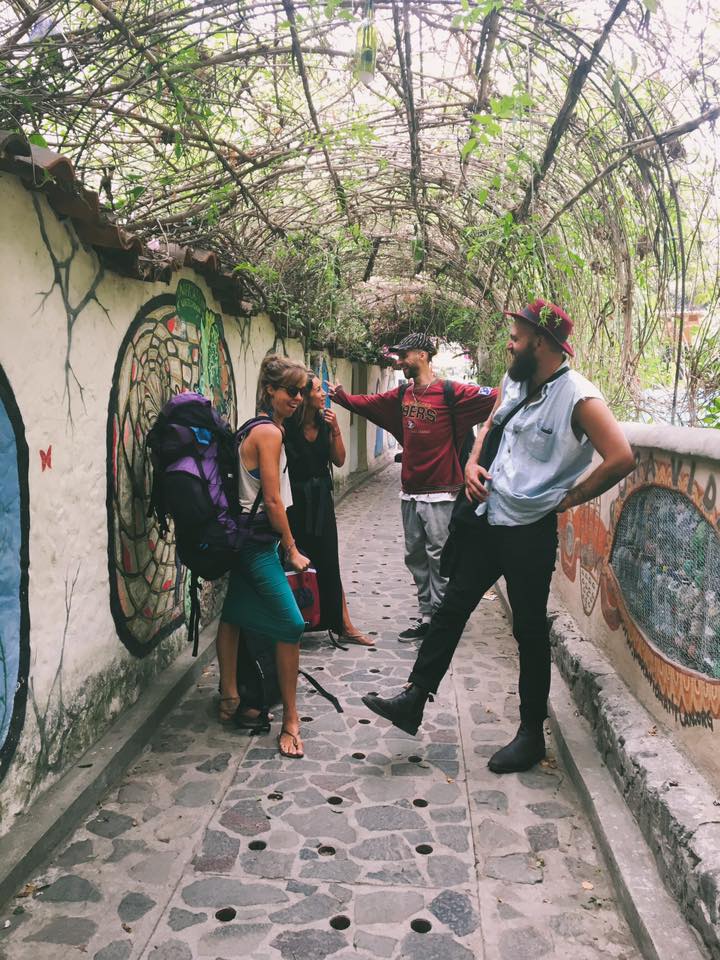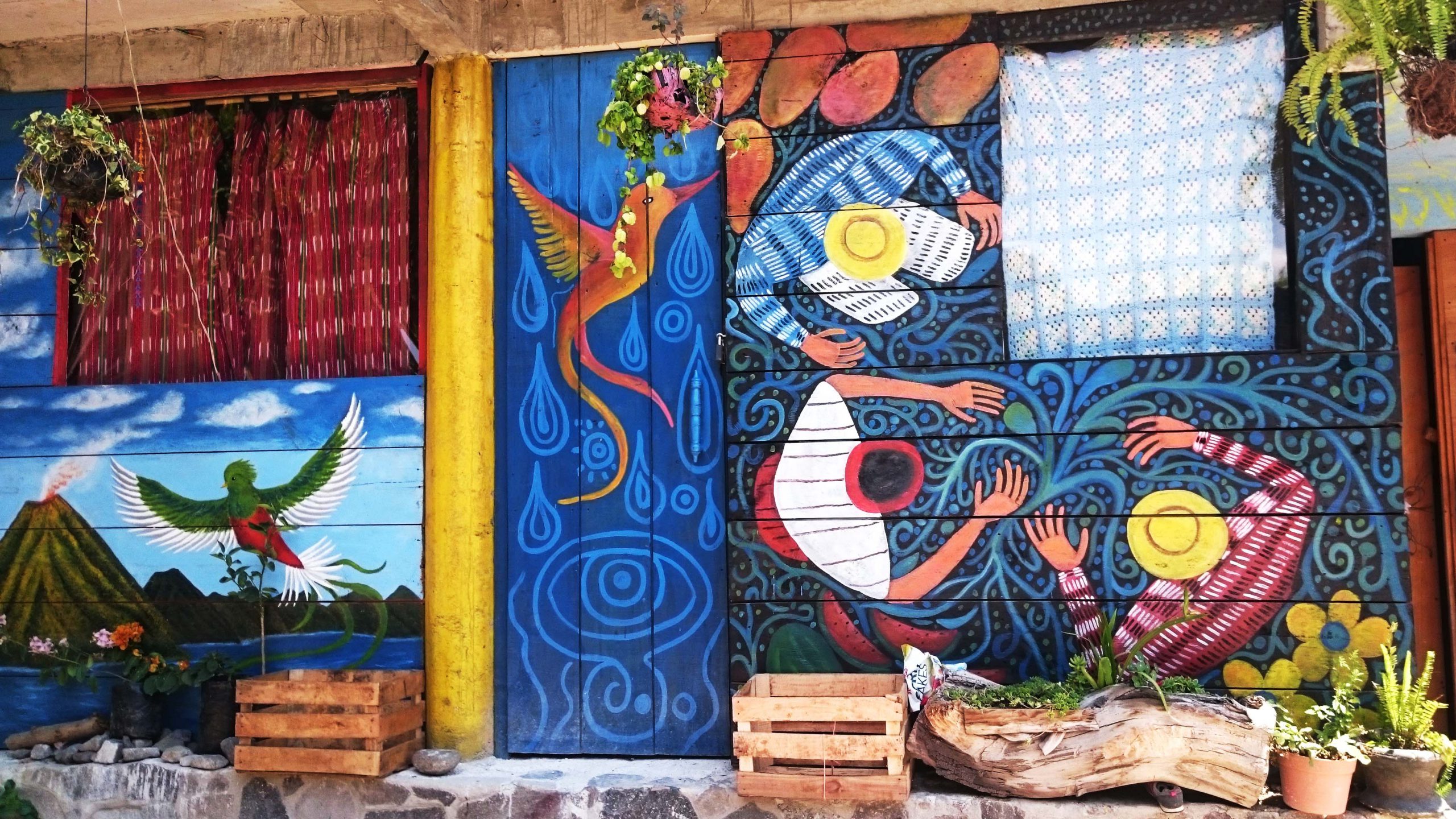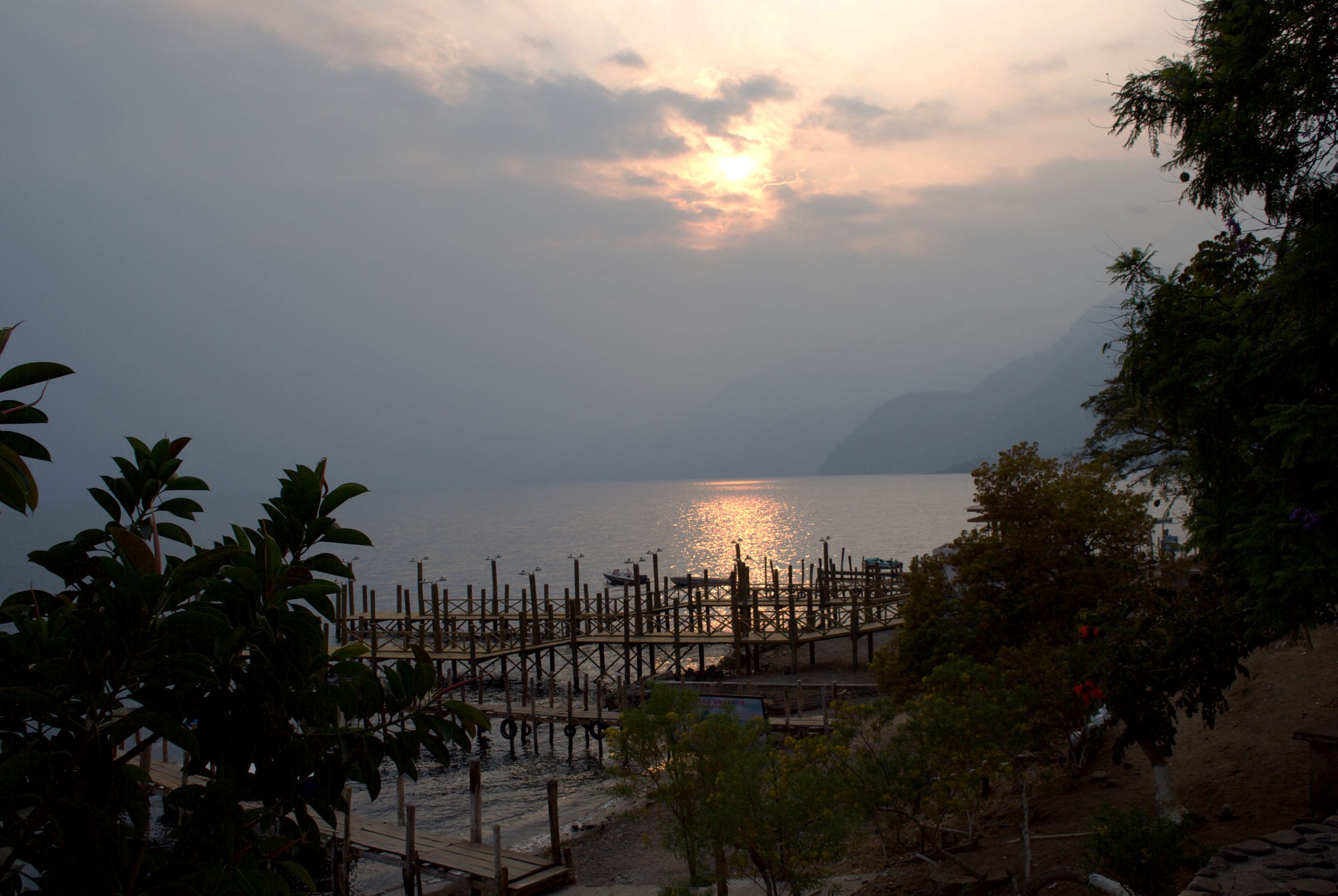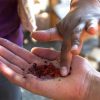The competition is fierce. Walls are covered: posters offering shamanic herbalism, a soulful journey of Self, 5rhythms movement and Osho meditations. Also: a phone number to call for private intuitive alchemy and invites for open floor tantra sessions, esoteric breathing and a dark room for higher dimensions.
This is San Marcos: a town on the shore of the most jaw-dropping lakes of the world, locked in by active volcanoes and lush-green mountains. A place described as one of the most peaceful destinations in South America. In the last decades, it developed itself to a modern pilgrim destination for spiritual seekers.
Other villages in the area all have a different character. There are 7 in total, but as our hotel owner said: ‘’for the party, go to San Pedro, for handcraft go Panajachel, for yoga go San Marcos. There is nothing in the other ones’’.






